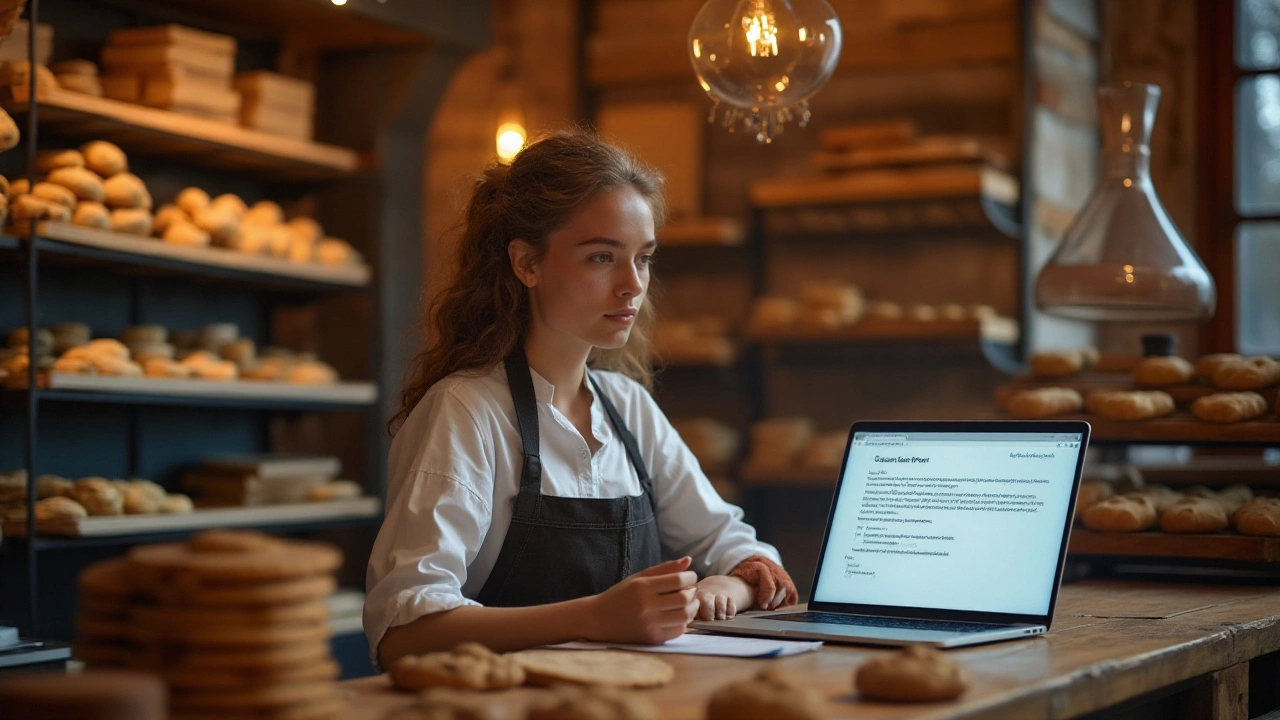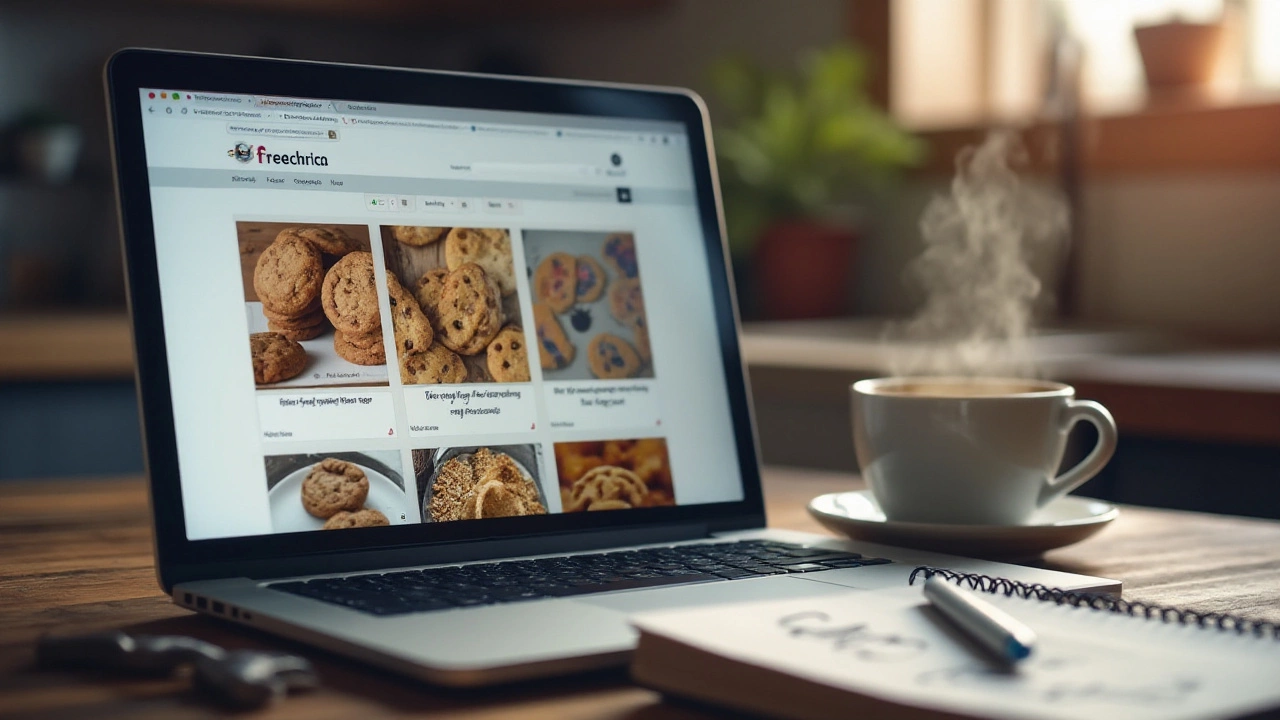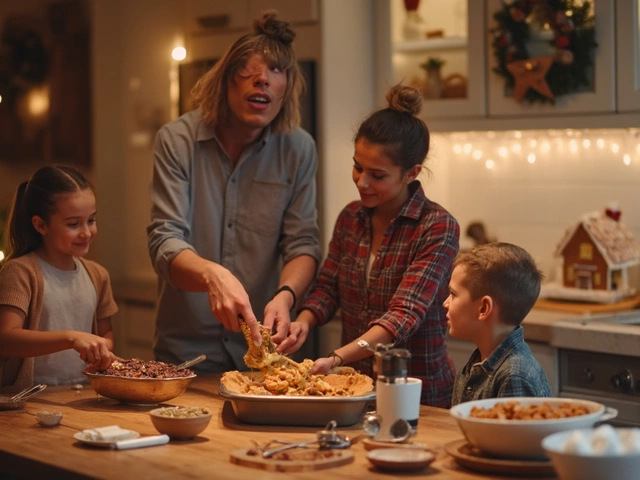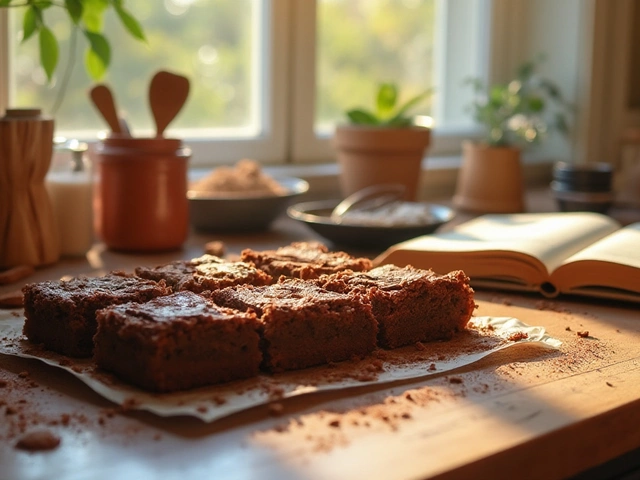
In today's digital landscape, Europe has established guidelines that impact the way cookies are shared—not the tasty kind you bake at home, but the data-tracking kind found in cyberspace. These rules have been set in place to protect personal information and outline clear permissions for their use.
For homemade cookie lovers who reach audiences across borders through websites and blogs, understanding these regulations is key. This law affects how you share your culinary creations online, ensuring that while your recipes reach hearts and homes, the digital information gathered during these interactions is handled with care.
Join us in exploring the ins and outs of Europe's cookie law, as we shed light on how it affects the world of homemade cookies and provide easy-to-follow tips to keep your baking adventures safe and enjoyable.
- The Cornerstone of the Cookie Law
- Digital Cookies versus Edible Cookies
- Impact on Homemade Cookie Sharing Online
- Tips for Compliance and Baking Safety
The Cornerstone of the Cookie Law
When we talk about Europe's cookie law, we're diving into an essential piece of legislation designed to protect personal privacy and define how digital cookies are used on websites. This law emerged as part of the broader ePrivacy Directive, which itself is mainly focused on ensuring confidentiality in online communications. In recent years, attention to data privacy across the world has increased significantly, making compliance with such regulations more critical than ever, especially when connecting with audiences through delicious homemade cookies recipes.
The regulation requires that websites operating within or targeting users in the European Union must obtain informed consent from users before storing non-essential cookies on their devices. These digital cookies are bits of data that ensure a seamless browsing experience but can also collect more information than we often realize. This is why understanding the specifics of these regulations is not just important for IT experts, but also for everyday enthusiasts sharing their passion for cooking online.
Let's imagine a scenario: you have crafted the most delectable homemade cookie, its secret ingredient bringing joy to anyone who tastes it. You decide to share this recipe on your blog, which sees visitors from all corners of the world, including Europe. To remain compliant, you must ensure your site provides clear information about data cookies, why they're used, and seek approval from each user visiting from the EU.
"Privacy in the digital age is not just about safeguarding sensitive data; it's about transparency, control, and the trust between users and content creators." - A notable thought leader in the privacy field once remarked.
The implications are broader than one might think, as non-compliance could threaten your ability to reach European audiences or lead to significant fines. Striking a balance between adhering to the law and maintaining the smooth functionality of your website is crucial. It may seem daunting at first, but there are tools and resources available that can assist in managing these digital cookies correctly.
Comprehending and implementing the law effectively involves expanding your knowledge on what types of cookies exist, such as session cookies, persistent cookies, and third-party cookies. Understanding the rationale behind each and how they impact user experiences can provide clarity. It is fascinating to note that a major portion of websites utilize these to some extent, necessitating informed decisions on whether the benefits they bring outweigh the privacy concerns.
Finally, remember that the essence of these rules is to enhance user trust and foster better interaction. When users know they're in a space where their personal data is respected and protected, they're more likely to engage and return. And for someone passionate about sharing homemade cookies, this means building a vibrant community of like-minded enthusiasts who visit not just for the recipes, but for the safe, secure environment you provide.

Digital Cookies versus Edible Cookies
When we hear the word "cookies," our minds often drift to the sweet aroma of freshly baked goods cooling on the kitchen counter. But in today's tech-savvy world, the term has taken on a new connotation that many may find less appetizing yet undeniably critical. Digital cookies are tiny bits of data stored by web browsers, designed to hold onto user-specific information like login credentials, shopping cart contents, and preferences tailored for user experience. These cookies may not satisfy your sweet tooth, but they play a significant role in personalizing one's digital journey.
Understanding digital cookies is crucial for anyone running an online platform, including enthusiastic bakers who might share their homemade cookies with the world through blogs or e-commerce sites. In Europe, regulations such as the GDPR and the ePrivacy Directive mandate proper handling and explicit consent for using digital cookies, thus ensuring that users' data privacy remains protected. These rules empower individuals by giving them both transparency and control over how their information is utilized. The levy of hefty fines due to non-compliance serves as a testament to the seriousness with which these laws are enforced.
Edible cookies, on the other hand, are a celebration of culinary artistry and alchemy, where simple ingredients transform into something magical. Making homemade cookies involves selecting just the right flour, sugars, and secret touches that pass down through generations. Much like digital cookies, where too much can spoil the browsing experience, overzealous use of certain ingredients in baking can result in a cookie that doesn't quite hit the mark. Both require balance, precision, and a touch of creativity.
The importance of consent cannot be overstated in either sphere. Just as you wouldn't serve cookies with potential allergens without a heads-up, you should communicate what digital cookies are being served on a website. - European Consumer Rights Organization
Thus, the interplay between these two worlds encourages a unique blend of discipline and joy. While one needs to respect individual preferences and boundaries in terms of privacy, the other echoes respect for taste and individual palate. To thrive in both areas, understanding your "audience" is key—be it your website visitors or family around the dessert table.
Bakers who manage websites can find practical steps to ensure they comply with Europe's cookie law. Ensure that clear, concise notices are provided immediately upon a user's visit. Employ Consent Management Platforms (CMPs) to streamline the authorization process. Regularly update privacy policies and be honest about the data gathered through performance statistics or marketing activities. Taking such conscientious measures will not only protect data but also sustain trust, much like the everlasting faith one has in cherished family recipes.

Impact on Homemade Cookie Sharing Online
In recent years, the digital realm has become an essential space for sharing cherished homemade cookie recipes and tips with a global audience. However, Europe's cookie law has brought about changes in how we connect with fellow bakers online. This legislation means that websites using digital cookies to collect data must inform visitors clearly about this practice and obtain their consent. For those in the business of blogging or running websites to share baking content, this compliance is vital. Failure to adhere could mean penalties, which are avoidable with a few simple steps.
When you visit a baking blog hosted in Europe, you might notice a pop-up asking for your consent to store cookies. This isn't just a polite request but a legal requirement. Yet, for bakers, this step can be a chance to reassure their audience of the safety of their site. As a baker, explaining the purpose of these digital cookies in easy terms—like how they help save user preferences or manage the shopping cart experience—can foster trust. In fact, a well-known internet safety advocate once said,
"Transparency in how you handle your audience's data is key to maintaining their trust and loyalty."
Moreover, not all homemade cookie enthusiasts are web developers, so understanding how to implement these changes might be daunting. Still, numerous tools and plugins are available today, simplifying the integration of cookie consent features into your site. By using these, you keep the focus on the fun and joy of baking rather than the complexities of compliance. A recent study noted that 85% of site visitors appreciate a straightforward explanation of data practices, which might increase their engagement time on your page.
Consider the effect of this legislation not just as an obligation, but as an opportunity to reflect on the security and privacy of your audience. As shared online recipes become more popular, protecting the data of your readers becomes as important as ensuring your cookies turn out perfectly every time. Embracing these digital safeguards can bolster your virtual baking community and enhance the experience for all cookie lovers who stumble upon your delicious creations.

Tips for Compliance and Baking Safety
Let's bridge the worlds of data compliance and the joy of baking with these essential tips to keep you safe in the realm of digital cookies, all while focusing on delightful homemade cookies. To begin with, making sure your website or blog is compliant with the European cookie law is critical—not just for the legal peace of mind but also for building trust with those who visit and engage with your content. A clear understanding of what kinds of data your website collects is paramount. Usually, cookie consent banners are the most noticeable tools employed. These should be concise, giving users a choice rather than simply informing them about the usage. They're used wisely if you run a site sharing recipes and cookie stories, as transparency will ensure your audience feels both informed and valued.
Consider employing tools that can help manage cookie consents effectively. These include software solutions like Cookiebot or OneTrust that dynamically update and manage consents. It's worth noting that the European Union requires express consent, with pre-ticked boxes being a no-go. Also, consider implementing double opt-in mechanisms for any newsletters or updates your site offers, reinforcing user autonomy and ensuring that your relationship with your audience is consensual. Interestingly, data from the International Association of Privacy Professionals (IAPP) indicated a significant increase in user trust among sites that enforced explicit cookie consent procedures, enhancing loyalty and interaction.
Understanding Digital Cookies in Baking Enthusiast Circles
For those who are passionate about sharing their homemade cookie recipes digitally, it's crucial that your content isn't overshadowed by data compliance issues. Knowing the difference between necessary and unnecessary cookies will ease this journey. Functional cookies operate the website, ensuring basic functionalities such as session and login management, while others, like performance and tracking cookies, are more for analytical purposes. Minimizing the use of non-essential cookies will not only enhance user experience by speeding up site load times but will also simplify your compliance process, focusing entirely on what matters: connecting through homemade cookie creations.
Practical Safety Measures for Your Homemade Cookie Haven
In addition to online compliance, when baking and sharing those scrumptious homemade cookies, safety in the physical kitchen is as vital as digital safety. Always maintain a hygienic baking environment, ensuring all utensils and surfaces are thoroughly cleaned before and after use. The right ingredients stored appropriately also make a substantial difference. When sharing recipes online, as you abide by the cookie law, include comprehensive nutritional information where possible, considering any dietary requirements your audience may have. It's all about caring for your community in every possible way. A quote by culinary savant Julia Child encapsulates the spirit beautifully, "Find something you're passionate about and keep tremendously interested in it." These words resonate equally in baking and managing your data responsibly.
Ultimately, harmonizing these elements—compliance and safety—ensures that the world can indulge in your delightful treats virtually and physically in a delightful, safe, and compliant manner. Embrace the guidelines, and let them guide you to build a thriving online baking community where every crumb of data is handled with the same love you sprinkle into your cookies.





